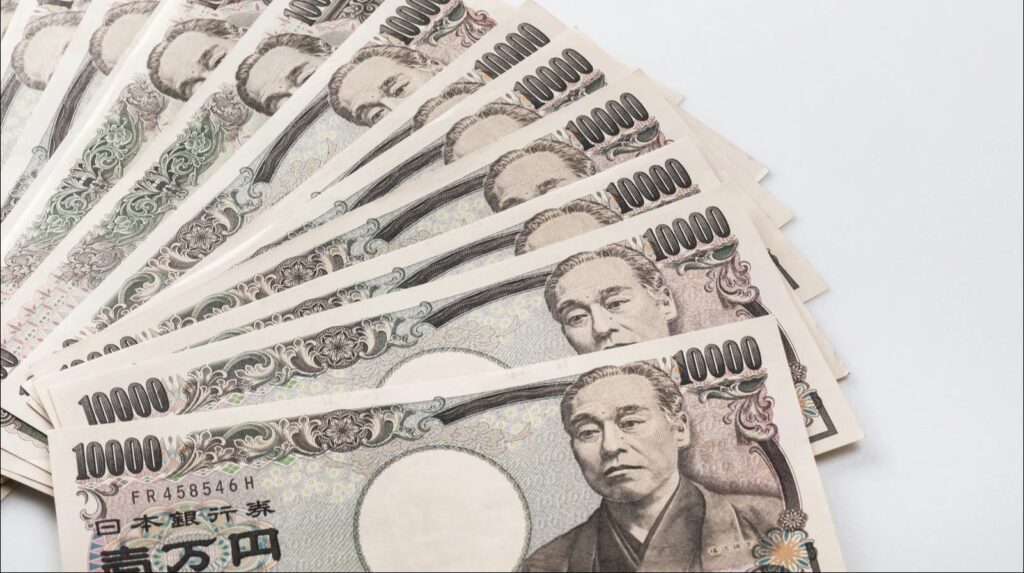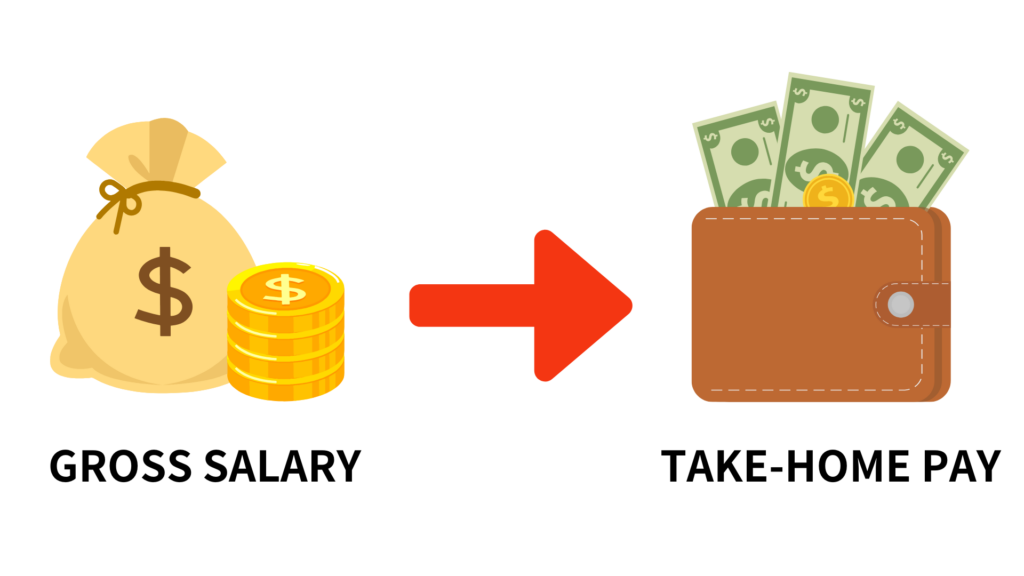
In Japan, it’s common for taxes to be deducted from your salary before you receive it. This system is called “withholding tax” (源泉徴収, gensen choushu), and it means that your employer takes the required tax directly from your salary and sends it to the government.

5 Key Salary Deductions in Japan
Here are the main 5 types of taxes and social insurance fees that are deducted from your salary:
1. Income Tax (Shotokuzei – 所得税)
Income tax is a national tax based on your annual income. The more you earn, the higher the tax rate (this is called a progressive tax system). Your employer withholds the estimated tax every month and sends it directly to the government.
燐 Calculation tip: The rate starts at 5% for low incomes and goes up to 45% for very high earners.
Why pay it?
This tax helps fund public services like education, roads, and national defense. At the end of the year, your tax is adjusted through a process called nenmatsu chousei (year-end adjustment), and if you overpaid, you might get some money back.

2. Resident Tax (Juminzei – 住民税)
Resident tax is paid to your local government, not the national government. It’s based on how much you earned last year, and you usually start paying it the following year.
燐 Calculation tip: Resident tax includes two parts:
- Per-capita levy (均等割り): A fixed amount everyone pays (around ¥5,000 per year)
- Income-based levy (所得割り): Based on your previous year’s income
Why pay it?
Resident tax supports local services like garbage collection, local schools, firefighting, and community infrastructure.

3. Health Insurance (Kenko Hoken – 健康保険)
Health insurance protects you from high medical costs. If you get sick or injured, the system covers about 70% of your medical expenses—you only pay the remaining 30%.
燐 Calculation tip: It’s a percentage of your salary (around 10%), and the cost is shared 50/50 with your employer.
Why pay it?
It gives you access to affordable healthcare, even for things like surgery or long hospital stays. It also covers some dental and maternity care.

4. Employee Pension (Kousei Nenkin – 厚生年金)
This is Japan’s main pension system for employees. You and your employer both pay half of the required amount. In theory, when you retire, you’ll receive monthly pension payments.
燐 Calculation tip: Around 18% of your monthly salary (split 50/50 with your employer).
Why pay it?
This is a controversial point for many foreigners, especially if you don’t plan to stay in Japan long-term. But:
If you leave Japan, you might be able to get some money back through a lump-sum withdrawal (脱退一時金), depending on your country and how long you contributed.
You are legally required to pay

5. Unemployment Insurance (Koyou Hoken – 雇用保険)
This supports workers when they lose their jobs or take certain types of leave (like maternity or caregiving leave).
燐 Calculation tip: Only about 0.6% of your salary is deducted, and your employer contributes more than you do.
Why pay it?
If you meet the conditions, you can receive monthly payments after job loss, and in some cases, free job training support or other benefits.

For a Salary of ¥4,000,000: Tax Deduction Simulation
Here, we will simulate the tax deductions for an annual salary of ¥4,000,000. This simulation assumes a standard situation, such as being single and without dependents. Please note that the amounts are average estimates and can vary depending on personal circumstances, such as additional deductions or exemptions you might qualify for (e.g., for a spouse or children).
| Item | Amount (JPY) |
|---|---|
| ①Income Tax | ¥84,600 |
| ②Resident Tax | ¥174,200 |
| ③Health Insurance | ¥200,000 |
| ④Employee Pension | ¥366,000 |
| ⑤Unemployment Insurance | ¥22,000 |
| Total Deductions | ¥846,800 |
| Take-home Pay | ¥3,153,200 |
Net Salary Simulation by Annual Income
| Annual Income (Gross) | Take-home Pay (Net) | Taxes & Insurance |
|---|---|---|
| ¥3,000,000 | ¥2,389,150 | ¥610,850 |
| ¥4,000,000 | ¥3,153,200 | ¥846,800 |
| ¥5,000,000 | ¥3,888,500 | ¥1,111,500 |
| ¥6,000,000 | ¥4,610,900 | ¥1,389,100 |
| ¥7,000,000 | ¥5,286,200 | ¥1,713,800 |
- Based on typical rates for income tax, resident tax, health insurance, employee pension, and unemployment insurance in Japan.

SUMMARY
It’s important to understand the taxes and insurance deductions from your salary. These deductions are essential for your future social security, health insurance, and support in case of unemployment. Additionally, income tax and resident tax are adjusted based on your annual income, so you may receive a refund of overpaid taxes through the year-end adjustment process.